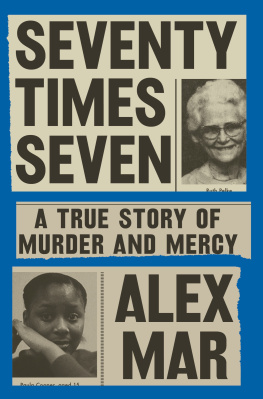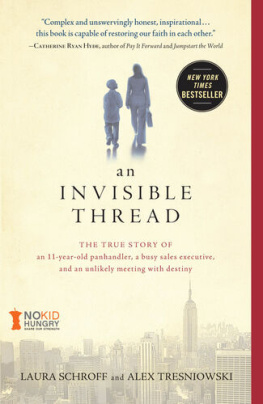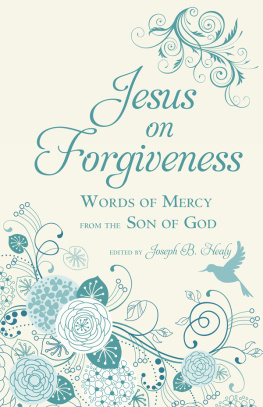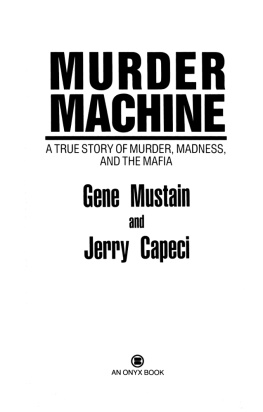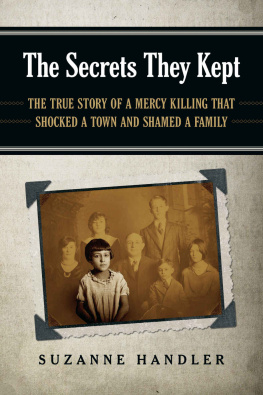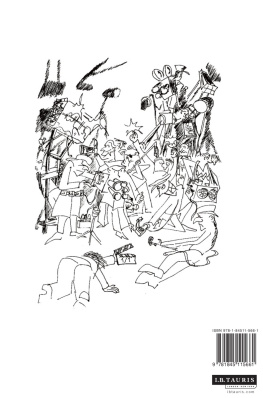Alex Mar - Seventy Times Seven: A True Story of Murder and Mercy
Here you can read online Alex Mar - Seventy Times Seven: A True Story of Murder and Mercy full text of the book (entire story) in english for free. Download pdf and epub, get meaning, cover and reviews about this ebook. year: 2023, publisher: Penguin Publishing Group, genre: Detective and thriller. Description of the work, (preface) as well as reviews are available. Best literature library LitArk.com created for fans of good reading and offers a wide selection of genres:
Romance novel
Science fiction
Adventure
Detective
Science
History
Home and family
Prose
Art
Politics
Computer
Non-fiction
Religion
Business
Children
Humor
Choose a favorite category and find really read worthwhile books. Enjoy immersion in the world of imagination, feel the emotions of the characters or learn something new for yourself, make an fascinating discovery.
- Book:Seventy Times Seven: A True Story of Murder and Mercy
- Author:
- Publisher:Penguin Publishing Group
- Genre:
- Year:2023
- Rating:3 / 5
- Favourites:Add to favourites
- Your mark:
- 60
- 1
- 2
- 3
- 4
- 5
Seventy Times Seven: A True Story of Murder and Mercy: summary, description and annotation
We offer to read an annotation, description, summary or preface (depends on what the author of the book "Seventy Times Seven: A True Story of Murder and Mercy" wrote himself). If you haven't found the necessary information about the book — write in the comments, we will try to find it.
Alex Mar: author's other books
Who wrote Seventy Times Seven: A True Story of Murder and Mercy? Find out the surname, the name of the author of the book and a list of all author's works by series.
Seventy Times Seven: A True Story of Murder and Mercy — read online for free the complete book (whole text) full work
Below is the text of the book, divided by pages. System saving the place of the last page read, allows you to conveniently read the book "Seventy Times Seven: A True Story of Murder and Mercy" online for free, without having to search again every time where you left off. Put a bookmark, and you can go to the page where you finished reading at any time.
Font size:
Interval:
Bookmark:
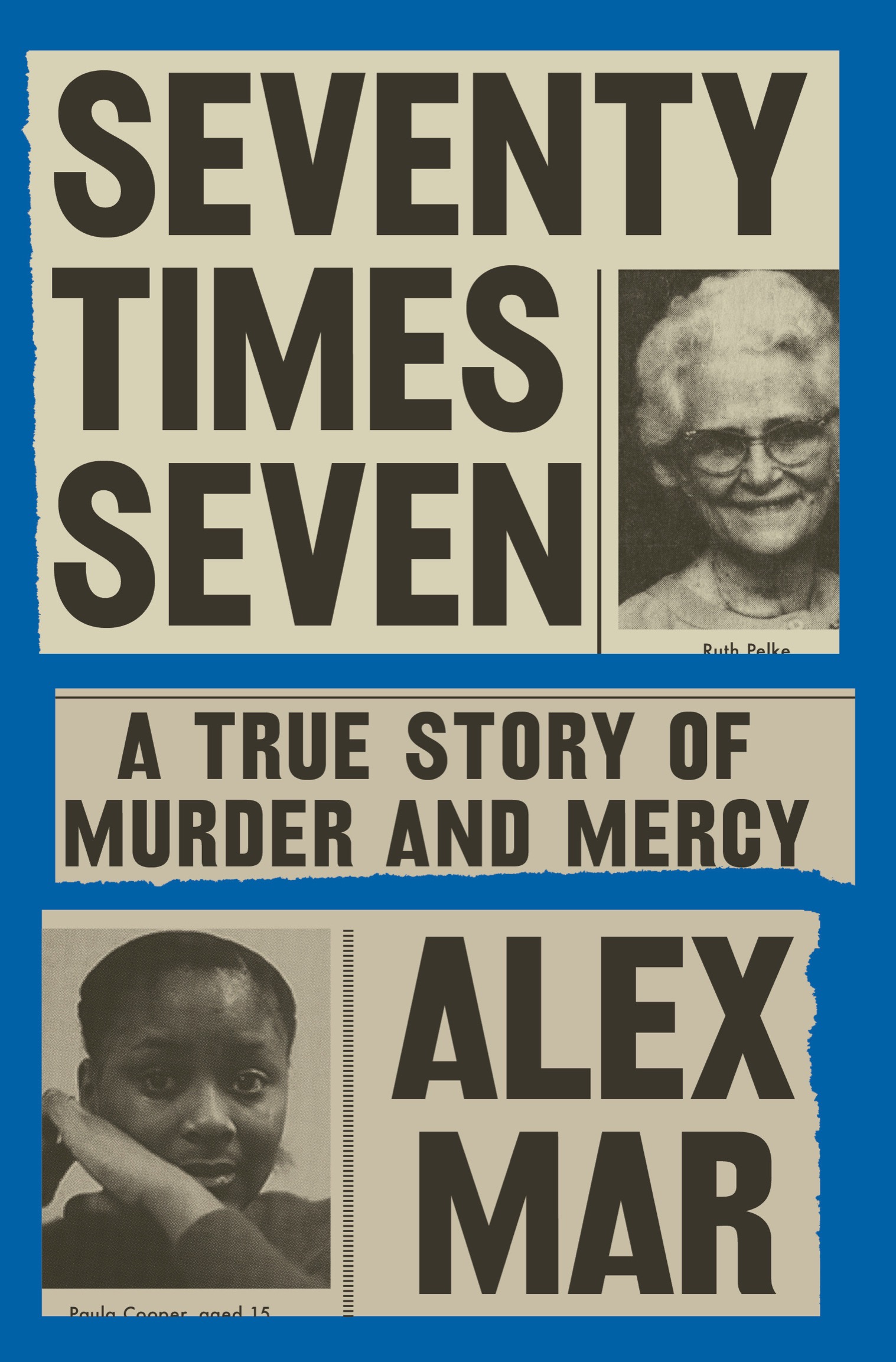
Witches of America
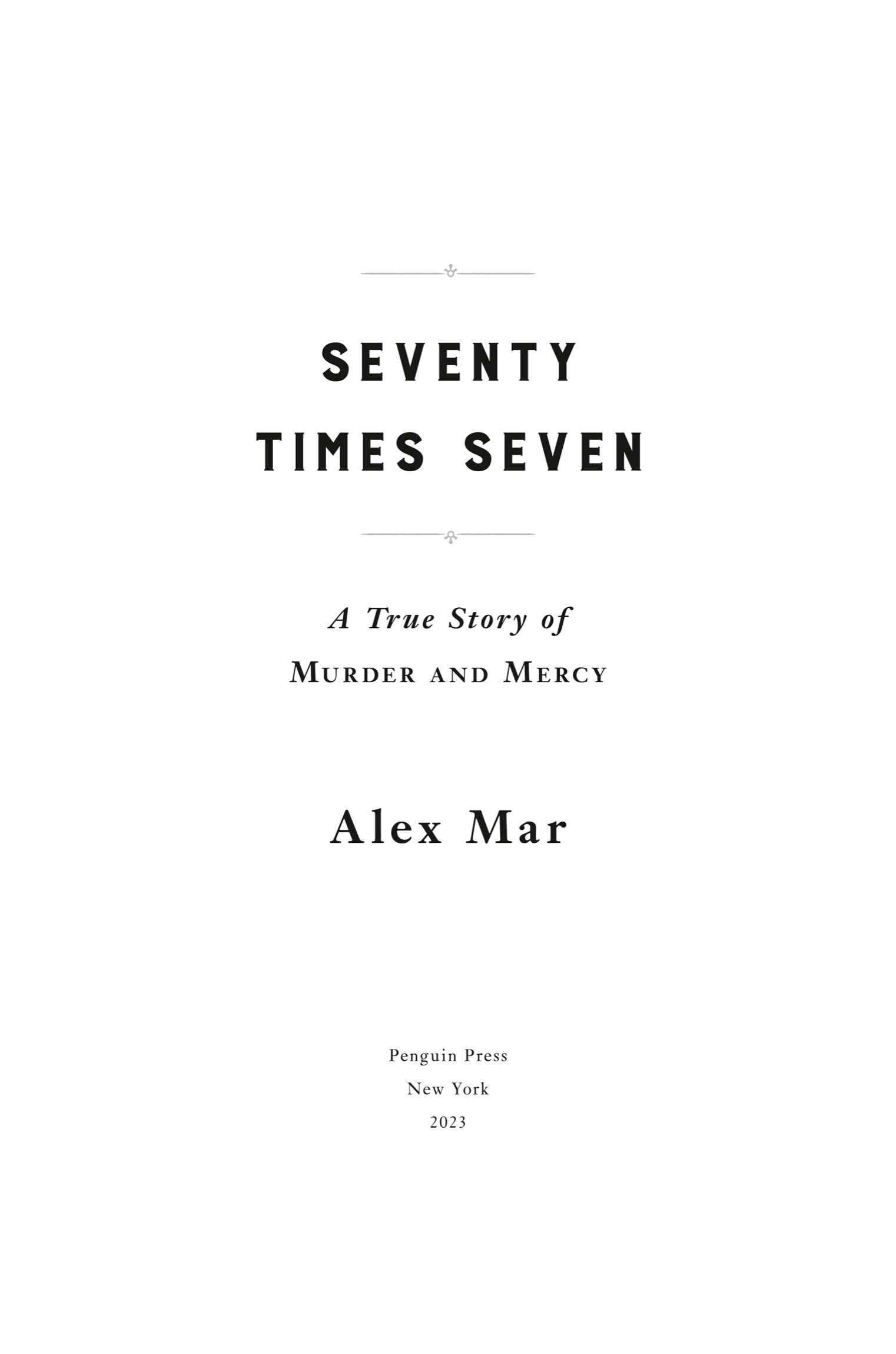
PENGUIN PRESS
An imprint of Penguin Random House LLC
penguinrandomhouse.com
Copyright 2023 by Alex Mar
Penguin Random House supports copyright. Copyright fuels creativity, encourages diverse voices, promotes free speech, and creates a vibrant culture. Thank you for buying an authorized edition of this book and for complying with copyright laws by not reproducing, scanning, or distributing any part of it in any form without permission. You are supporting writers and allowing Penguin Random House to continue to publish books for every reader.
Image credits appear on .
library of congress cataloging-in-publication data
Names: Mar, Alex, author.
Title: Seventy times seven : a true story of murder and mercy / Alex Mar.
Description: New York : Penguin Press, 2023. | Includes bibliographical references and index.
Identifiers: LCCN 2022029831 | ISBN 9780525522157 (hardcover) | ISBN 9780525522164 (ebook)
Subjects: LCSH: Cooper, Paula, 19702015. | MurderIndianaGaryCase studies. | Female juvenile delinquentsIndianaGaryCase studies. | African American juvenile delinquentsIndianaGaryCase studies. | Capital punishmentIndianaGaryCase studies. | ForgivenessIndianaGaryCase studies.
Classification: LCC HV6534.G37 M357 2023 | DDC 362.88/2930977299dc23/eng/20221230
LC record available at https://lccn.loc.gov/2022029831
Cover design: Darren Haggar
Cover image: Paula Cooper, Johnson Publishing Company Archive. Courtesy J. Paul Getty Trust and Smithsonian National Museum of African American History and Culture
Designed by Amanda Dewey, adapted for ebook by Cora Wigen
pid_prh_6.0_142879847_c0_r0
For Todd
And then you arrived.
Then Peter came to Jesus and asked, Lord, how many times shall I forgive my brother or sister who sins against me? Up to seven times?
Jesus answered, I tell you, not seven times, but seventy times seven.
The Gospel of Matthew

On a spring afternoon in 1985, in Gary, Indiana, four teenage girls enter the home of an elderly woman under false pretenses, and when they leave she is dead. One of them, a fifteen-year-old, will soon be sentenced to death for murder. There is no question of her guilt; this is not a story of wrongful conviction.
The crime was violent enough to shock the consciencea legal phrase the prosecutor invokesand so no voices of protest will rise up in that city, or in broader Lake County or farther south in the capital, at the impending execution of a tenth grader. Not until a man very close to the victim, her grandson, publicly forgives the girlagainst the wishes of his familyand campaigns to spare her life. Not until the crime is featured on the front pages of newspapers and television programs five thousand miles away, across the ocean, where petitions are signed by millions, does the American media begin to question the outcome of this case. A tragedy in a midwestern steel town will continue to play out, have its second act, as far away as the Vatican. From criminal court in northern Indiana, the reverberations of the case will eventually be felt in the highest court of the United States.
Over the past five years, I have read thousands of pages of documents, personal letters, and newspaper features, and scanned through thousands of photographs and dozens of hours of footage. I have conducted interviews with some eighty individuals, culminating in hundreds of hours of conversation. Throughout, I was asking myself about the nature of belief, of conviction, the source of our guiding principles. I have asked myself what our common definition of justice might be, if there is even a shared understanding of the word.
Unlike some of the people whose lives and choices I will describe here, I am not a practicing Christian. But I have returned again and again to a moment from the Gospel of Matthew that has special meaning for someone at the center of this story: the moment when the disciple Peter asks Jesus how many times he should forgive those who harm him. The answer is seventy times sevenan enormous number, as if Jesus were suggesting his followers be prepared to forgive an infinite number of times. It is hard to imagine someone who could carry this out; it is hard to know if such a request is even fair. Anger is a very human, instinctual response. The act of forgiveness, I think, is more alien, and requires something tougher: a belief that none of us is solely defined by the worst thing we have ever done. That each of us remains human, sometimes in spite of our actions. And that sometimes, our actions are a response to forces larger than ourselves.
This is a story that asks what any community is willing to accept as just consequencesas justicefor harm done. It is a difficult question, one that each person in this book has been forced to confront. Because whatever the answer, its impact will be more sprawling than predicted, hard to contain. Whether or not we choose to acknowledge it, in ways very great or very small, the fates of neighbors are linked.
One house of the many that make up a city: a pale-yellow house, an hour after sunup in Gary, Indiana. A woman lives here, on Wisconsin Street, with her two daughters. Rhonda is twelve, her sister Paula is nine. It is 1979.
Their motherher name is Gloriahustles them outside into the morning light, and then into the dark of the garage and the back seat of her red Chevy Vega. The girls are very young, and they are powerfully tired. They understand what their mother intends to doshe has kept them up all night softly talking then shouting then whimpering to them about where theyll be traveling together, about what must happen nextand they are no longer resistant.
With her daughters inside, Gloria tugs at the garage door until it slides down to meet the concrete. She slips into the drivers side, rolls down the windows, turns the key in the ignition: the engine gives off a deep, thrumming sound. Then she waits for them to close their eyes and fall into that steady rhythm; she can see their faces in the rearview mirror, small and brown and perfect. All three are still, their limbs grown heavy as if underwater.
The engine continues running; the minutes accumulate; the air thickens.
Outside the garage, the neighborhood is awakening. Inside the garage, the girls are passing into an unnatural sleep.
What Rhonda remembers next: she and Paula laying side by side on their bottom bunk, not knowing how they got there. They have not exited the world. Gloria is leaning over them, her daughters: they will be all right, she says. Just before leaving.
Rhonda does not know how much time has passed before she is able to move her body. She rises slowly. A letter is taped to the door, from their mother: She is finishing what she set out to do. Rhonda rushes to the kitchen and calls her aunt, who tells her to run, get their neighbor. Through the window, she thinks she sees exhaust seeping out from under the garage door, into the bright daylight.
Mr. Hollis drags Gloria out of the garage and lays her on her back on the lawn. He drops to his knees and with elbows locked, hand over hand, pushes hard on her chest. Again and again. The neighbor across the street, a nurse, rushes over and takes her turn trying to pump breath back into Glorias body.
Font size:
Interval:
Bookmark:
Similar books «Seventy Times Seven: A True Story of Murder and Mercy»
Look at similar books to Seventy Times Seven: A True Story of Murder and Mercy. We have selected literature similar in name and meaning in the hope of providing readers with more options to find new, interesting, not yet read works.
Discussion, reviews of the book Seventy Times Seven: A True Story of Murder and Mercy and just readers' own opinions. Leave your comments, write what you think about the work, its meaning or the main characters. Specify what exactly you liked and what you didn't like, and why you think so.

